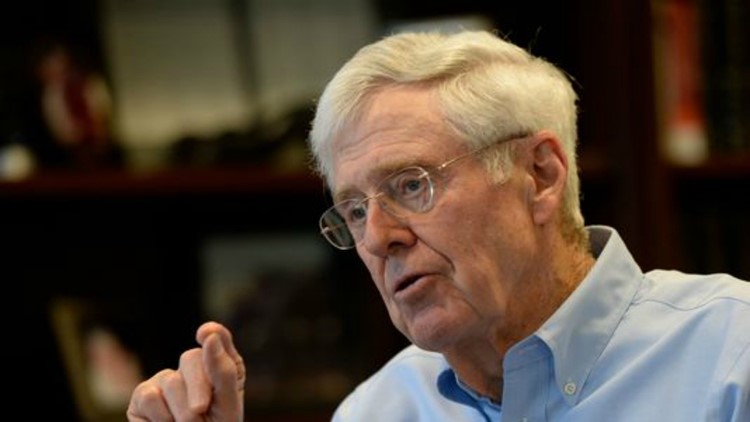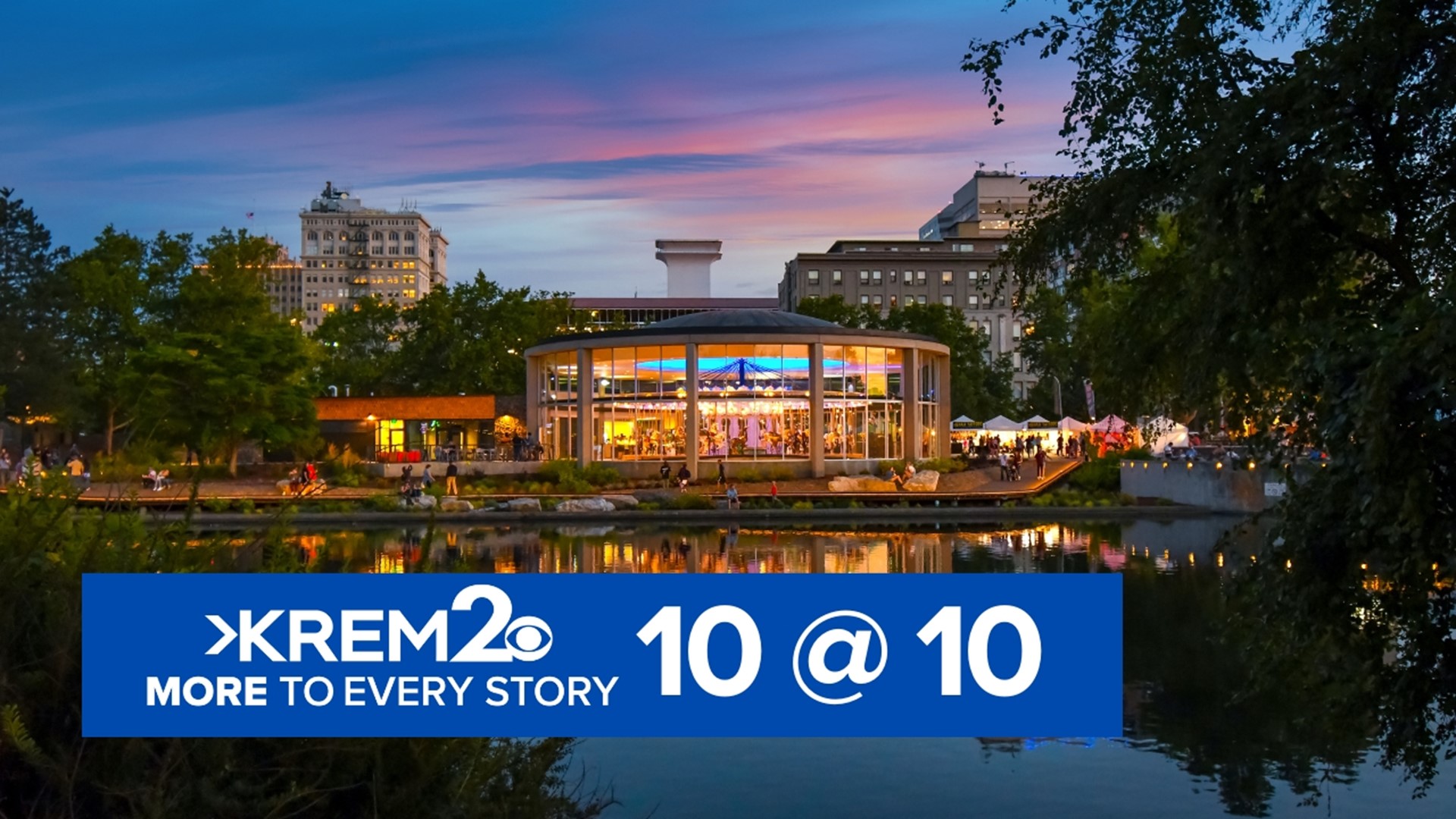COLORADO SPRINGS, Colo. — Charles Koch and top officials in the powerful network aligned with him warned Sunday that Republicans should no longer take their financial support for granted – as Koch-aligned groups work to dramatically expand their free-market message to more parts of American society.
Koch, the billionaire industrialist at the center of the conservative network, told reporters that he regrets his support of politicians who "say they are going to be for these principles we espouse, and then they aren’t."
"We are going ... to hold people responsible for their commitments,” he said during the second day of a retreat with more than 500 donors whose financial help has helped make the network one of the most powerful forces in Republican politics.
Koch also criticized Trump’s tariff battles with China, Mexico and other countries, saying the president's action on trade could trigger a recession "if it's severe enough."
“We should just get rid of all barriers, except for things that will hurt people," he said during a rare, on-the-record conversation with reporters. "We should let all goods in."
Koch pointedly did not support Trump in the 2016 presidential election. And although one of his top aides, Brian Hooks, on Saturday slammed the White House’s “divisiveness” as causing “long-term damage” to the country, Koch on Sunday declined to criticize Trump directly.
“We’ve had divisiveness long before Trump became president and will have it long after he’s no longer president,” Koch said during the roughly 10-minute conversation with journalists.
“I’m into hating the sin, not the sinner,” he added.
The network launched by the Kansas billionaire 15 years ago is poised to spend as much as $400 million on policy and politics in the current two-year election cycle. In one sign of its influence: A cluster of nine Republican politicians, including Florida Gov. Rick Scott and Kentucky Gov. Matt Bevin, were expected to attended the three-day conclave.
But after years of backing Republicans, Koch leaders have expressed growing dismay over what they view as bloated government spending at the hands of Republicans who now control both side of Pennsylvania Avenue in Washington.
And they touted their willingness to work with Democrats on key priorities.
In a Sunday morning speech to donors, Hooks singled out the March passage of a mammoth $1.3 trillion federal spending bill that boosted domestic funding by about 12 percent.
“Many of you watched in disgust as the most fiscally irresponsible budget in the history of our country was passed … under a Republican government," he said. "We supported the election of some of these guys."
“People are taking us for granted," Hooks said.
Emily Seidel, an executive with the Koch-aligned Americans for Prosperity, pointed to the network’s digital advertising this year targeting Rep. Lou Barletta, R-Pa., over his vote on the spending plan as a sign the group isn’t afraid to take on Republicans in an election year.
Barletta, a Trump ally, is the Republican nominee in Pennsylvania’s Senate race, taking on Democratic Sen. Bob Casey.
“If you are a Republican who sits on the committee that wrote the worst spending bill in our country’s history and you voted for it, you are darn right we’ll hold you accountable,” Seidel said to applause in a crowded ballroom.
“This network will no longer follow anyone else’s lead,” she said.
Journalists are invited to cover portions of Koch’s twice-annual retreats but face restrictions, such as not identifying donors without their permission.
During the summer retreat, at the luxurious Mediterranean-style Broadmoor Hotel here, donors gathered at outdoor receptions, dinners and inside large conference rooms to celebrate their victories — such as lobbying on legislation to give veterans more access to private-sector physicians and helping pass more so-called “right to work” laws at the state level.
They also plotted strategy on future battles.
Attendees surrendered their cellphones before heading into sessions and received warnings from the stage not to post on social media about the proceedings.
Charles Koch’s younger brother, David Koch, retired from the organization and the family company, Koch Industries, last month. Although known — and vilified by Democrats — as the “Koch brothers” network, Charles Koch, 82, sits at the center of the empire.
He launched it in 2003 as a small gathering of business leaders to oppose increased federal spending and then-President George W. Bush’s steel tariffs.
Today, more than 700 donors contribute at least $100,000 annually to the network’s programs.
Although known for its political influence, officials say only one-quarter of the network’s spending flows to policy or political efforts. Fast-growing parts of the organization include its support for higher education and programs to address poverty and reduce recidivism.
“What Charles set out to create 15 years ago,” Hook told attendees Sunday, “now has become a movement.”



